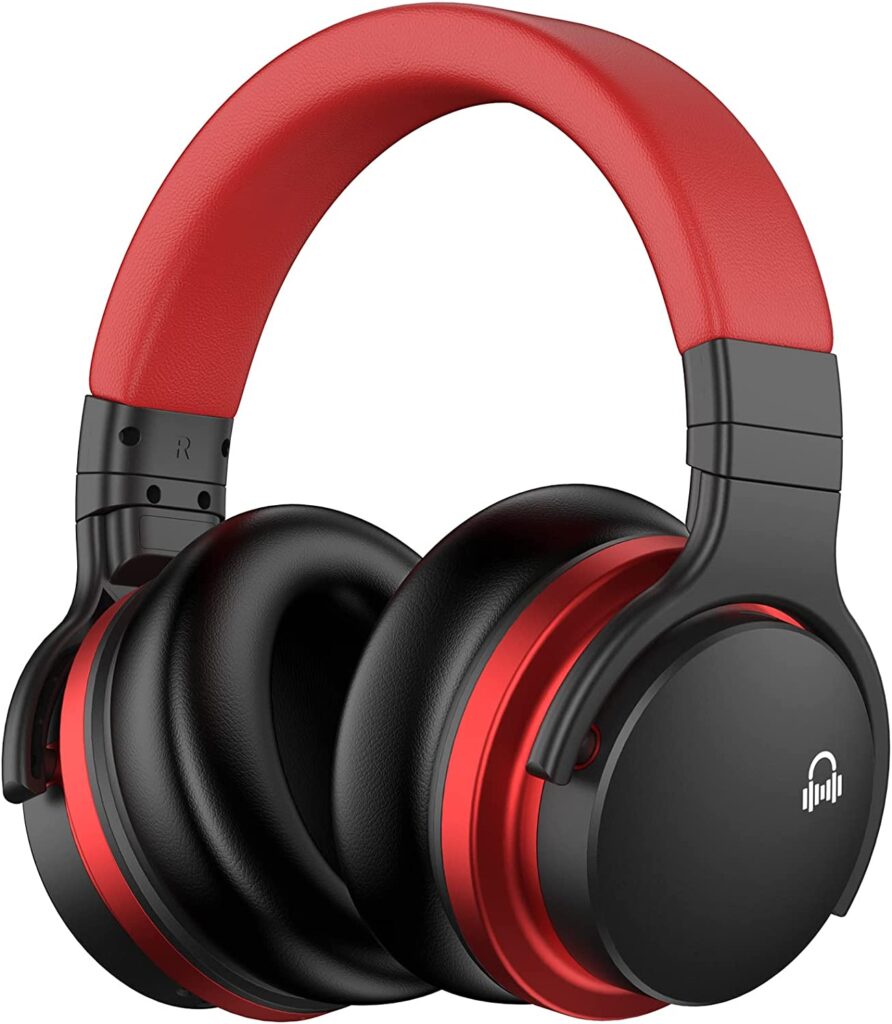Perhaps the early morning hours are filled with the sound of sirens because you live in a city that never sleeps. Or perhaps you miss the opportunity to get your partner to bed early and their snoring wakes you up at night. You grab your headphones and turn on some relaxing rain to drown out the chaos rather than losing sleep over it.
Is It Safe to Sleep With Earbuds or Headphones?
Do you run the risk of hurting your ears even when you’re not playing music?
There are a number of reasons why you might want to use headphones while you sleep if you’re trying to improve your sleep hygiene, including:
– reducing noise.
– Relaxation.
– Stress reduction.
– establishing the proper mental state.
Most frequently, tinnitus sufferers are interested in using headphones while they sleep because they want the ringing to stop so they can get a full night’s rest without interruption.
This ringing may result from a number of factors, including:
– side effects of prescription drugs.
– Excessive caffeine.
– large aspirin doses.
– loss of hearing.
– physical injury or ear trauma brought on by loud noises like fireworks.
excessive exposure to noise at work or during leisure pursuits without wearing hearing protection.
– physical strain, such as lifting weights.
– Ringing in the ears can also be brought on by emotional stress. This is why many people might want to drift off to sleep while listening to something calming or unwinding to reduce stress.
Can You Sleep Better?
It is possible to use headphones to enhance your sleep, or at the very least, your bedtime routine. However, according to Dr. Pavlovich Ruff, it all comes down to wearing the appropriate headphones and using them as intended.
In an emergency, stay away from noise-canceling headphones.
What if someone is trying to reach you or there is another emergency going on nearby when your phone rings?
Do you think you could hear those things? That would be my main worry.
Keep your volume at about 50% or less.
A good generalization is that if someone is within arm’s length of you, they shouldn’t be able to hear what you’re listening to and you should be able to hear them speak to you without taking off your headphones.
Most people can typically tolerate listening to sounds at 85 decibels for up to eight hours without experiencing any negative effects. However, for every three decibels you add when listening to anything louder than 85 decibels, you should cut your listening time in half. Therefore, it is only safe to listen to something at 88 decibels for four hours at a time.
More comfortable are over-the-ear headphones, but make sure there are no cords attached.
The last thing you want to do while trying to fall asleep is get tangled up in cords or even unintentionally raise the volume. In general, you should choose wireless over-the-ear headphones because they can be more comfortable because they don’t obstruct your ear canal. Even headbands with headphones built in are available; these wrap around your head for added comfort.
Instead, if you can, use an external speaker.
This next choice might not be available to some of us if we live with a partner or family members. However, using an external speaker is preferable if you can because it relieves strain on your ears. Additionally, you can program timers to have some devices turn off after a certain amount of use. In this manner, the listening you do is restricted to the brief moments just before you nod off to sleep.
Side effects to be aware of
Your outer and inner ear may be harmed by wearing headphones, which can also cause hearing loss.
Swimmer’s Ear
The infection known as “swimmer’s ear” can develop over time if water becomes trapped in your ear canal. This can occur if you regularly swim, of course, but it can also occur if you wear earplugs or in-ear headphones that keep moisture in your ear for an extended period of time. Swimmer’s ear can cause your ear to appear red, itchy, and painful. In some circumstances, you might have pus draining from your ear and experience a little hearing loss. It’s crucial to keep your ear canal dry in these circumstances and visit an ENT doctor who can prescribe ear drops to treat the infection.
Necrosis
The skin in your ear canal can become damaged over time if your headphones don’t fit properly, which may result in necrosis. Because of an injury or trauma, there is insufficient blood flow, which causes your skin cells to die and leave behind lesions or black and brown tissue.
CONCLUSION
If you’re determined to prepare for your next sleep cycle, sleeping with headphones is only an option if you’re prepared to invest in two pairs of over-the-ear headphones and lower the volume while wearing them. “I’d watch how loud your volume is and how they fit.”

